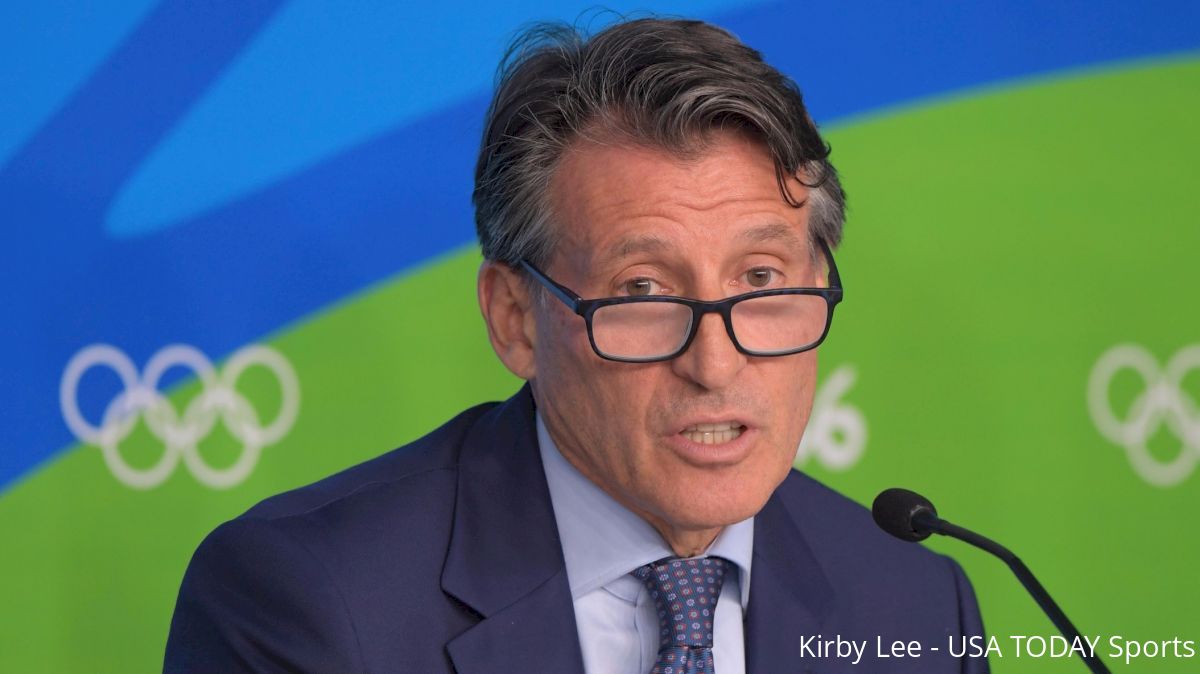What Did Seb Coe Know And When Did He Know It?
What Did Seb Coe Know And When Did He Know It?
The British parliament is trying to ask Seb Coe about an email detailing the Liliya Shobukhova extortion case.

The British parliament, which seemingly has bigger issues to deal with, is trying to question IAAF president Sebastian Coe this week about an email he received in August 2014. What is not in dispute is that Coe received an email from London Marathon race director Dave Bedford detailing how the IAAF extorted $550,000 from Russian marathoner Liliya Shobukhova to cover up a doping positive.
Coe and the IAAF claim that he didn't open the email, that the details were in the attachments, and that he forwarded it to the IAAF Ethics Commission. Last summer, an IAAF spokesperson said that "this was enough for Seb Coe to forward the email to the ethics commission. He did not feel it was necessary for him to read the attachments. You may think this shows a lack of curiosity. He, and we, would argue that it shows a full duty of care -- ensuring the right people in the right place were aware of allegations and were investigating them."
This actually may give Coe plausible deniability--maybe he knew that reading or ignoring the email would have disqualified him from later holding the IAAF presidency, and so he threaded the thinnest needle possibility.
Coe's avoidance of the email as radioactive is continuing today. According to the Guardian, Coe is refusing to testify about it in parliament despite a summons.
The summons comes after Bedford testified that he emailed, called, and texted Coe about Shobukhova to no avail. Bedford--like Coe a former British superstar distance runner turned administrator--believes that Coe was ignoring him to protect himself, saying that he was maybe "playing the long game."
Bedford testified that "If you look at what has happened subsequently to [Coe] being elected to a position of power, there are clear implications that he wants the integrity of our sport brought back and he has made significant steps towards that happening. I think that it might be true that he decided that the best way he could help the sport was to make sure that he got elected as president, because if it didn't happen then there was no future for the sport."
I don't think Seb Coe is the only thing protecting track and field from losing its future, but if he felt that way in 2014, it's easy to see why he would do exactly what he did.
Coe and the IAAF claim that he didn't open the email, that the details were in the attachments, and that he forwarded it to the IAAF Ethics Commission. Last summer, an IAAF spokesperson said that "this was enough for Seb Coe to forward the email to the ethics commission. He did not feel it was necessary for him to read the attachments. You may think this shows a lack of curiosity. He, and we, would argue that it shows a full duty of care -- ensuring the right people in the right place were aware of allegations and were investigating them."
This actually may give Coe plausible deniability--maybe he knew that reading or ignoring the email would have disqualified him from later holding the IAAF presidency, and so he threaded the thinnest needle possibility.
Coe's avoidance of the email as radioactive is continuing today. According to the Guardian, Coe is refusing to testify about it in parliament despite a summons.
The summons comes after Bedford testified that he emailed, called, and texted Coe about Shobukhova to no avail. Bedford--like Coe a former British superstar distance runner turned administrator--believes that Coe was ignoring him to protect himself, saying that he was maybe "playing the long game."
Bedford testified that "If you look at what has happened subsequently to [Coe] being elected to a position of power, there are clear implications that he wants the integrity of our sport brought back and he has made significant steps towards that happening. I think that it might be true that he decided that the best way he could help the sport was to make sure that he got elected as president, because if it didn't happen then there was no future for the sport."
I don't think Seb Coe is the only thing protecting track and field from losing its future, but if he felt that way in 2014, it's easy to see why he would do exactly what he did.